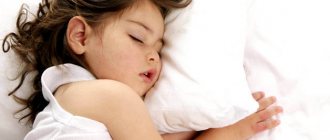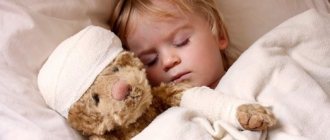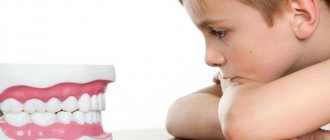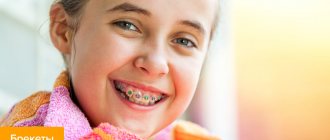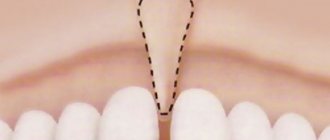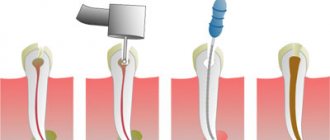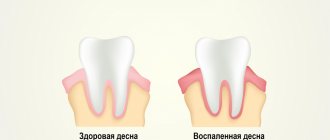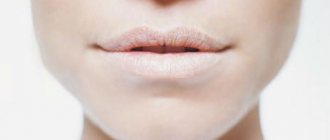Why does a child grind his teeth in his sleep: reasons
Experts are not always sure about the causes of bruxism. There are several options why children experience grinding at night:
- Incorrect bite. This is when the upper and lower teeth are not aligned properly;
- Other babies do it as a response to pain, such as ear pain or teething. Children may grind to relieve pain;
- If you have a disease - epilepsy, cerebral palsy. Or the child is taking certain medications that may develop grinding;
- During adolescence, teeth grinding at night can be caused by smoking and drinking alcohol;
- Heredity. Bruxism can be passed on to children if parents suffer from this disease;
- Another reason is stress. This is usually nervous tension or anger. For example, your child may be anxious about a test at school or because of a change in their routine;
After the age of six, many children outgrow teeth grinding.
Minor defect?
Grinding of teeth in a child may seem like a minor deviation from the norm only at first glance. It’s good when this phenomenon is temporary and at the age of 5–6 years, bruxism in a child goes away on its own. But if your first-grader continues to grind his teeth at night, don't hesitate to seek medical help. Otherwise, even the permanent teeth that will replace the milk teeth will be at risk.
Diagnostics
Most children who have this problem during night or daytime sleep do not even know about it. Therefore, most often, parents diagnose the problem.
Some signs:
- Teeth grinding when your baby sleeps;
- Complaints of pain in the face or jaw after waking up in the morning;
- Pain when chewing.
If you experience any of these signs, contact your dentist to examine your mouth for wear and damage. Spray air and water on teeth to test sensitivity.
If damage is found, the dentist may ask your child several questions, such as:
- How do you feel before bed?
- Are you worried about anything at home or at school?
- Are you angry with someone?
- What do you do before bed?
The exam will help the dentist understand whether the cause is anatomical (misaligned teeth) or psychological (stress). Select an effective treatment plan.
Prevention
Bruxism at an early age can be prevented. Parents are advised to reconsider their daily routine. The last meal should be no later than 2 hours before bedtime. From 4-5 months, the baby can be given to gnaw on an apple or carrot in the evening so that his muscles get tired and do not shrink outward.
During the day, parents control that the child does not make voluntary movements with his jaws, does not creak them, expressing negative emotions. Watching TV and staying in front of a computer or phone monitor is limited to 2 hours a day. Before going to bed, it is advisable to completely abandon such entertainment and devote time to quiet board games, a walk in the fresh air or reading books. In the evening, they try to maintain a positive emotional mood to ensure a restful sleep.
To prevent calcium deficiency, pediatricians recommend taking small doses of vitamin D from October to March. Infants up to one year old need it, but studies show that calcium deficiency occurs even at older ages. Therefore, schoolchildren can switch to calcium complexes with vitamin D or multivitamins.
From early childhood, children can be taught to visit the dentist and take proper care of the oral cavity. This helps reduce the risk of bruxism due to periodontitis or fillings.
Helping children with bruxism
Whether the cause is physical or psychological, children can control bruxism by relaxing before bed—for example, taking a warm bath or shower, listening to soothing music for a few minutes, or reading a book. For infants who are teething, you can offer them a pacifier. She will calm the baby and give a light massage to the gums.
If you are teething or have an ear infection, ask your doctor to prescribe the correct dose of ibuprofen to relieve discomfort.
If teeth grinding is caused by stress, ask about what is upsetting your baby and find solutions.
In rare cases, when stressful situations cannot be resolved within the family circle and sleep problems arise, the help of a psychologist is required. He will help you find the cause of stress and prescribe the right course of treatment.
Possible consequences
Sometimes parents are calm about teeth grinding. This is especially true for primary dental units, which still laugh. Is this the right decision? Consequences of bruxism:
- the integrity of the enamel is damaged, which provokes increased sensitivity of the teeth;
- the fixation of dental units in the jawbone is disrupted and the risk of their loss increases;
- the pathology can remain for life and be permanent (in such cases, the dental tissues become thinner almost to the roots);
- with prolonged grinding of teeth, disorders occur in the temporomandibular joint;
- in the process of regularly clenching the jaws, the inner sides of the cheeks and tongue can be injured, and this can lead to infection;
- risk of hearing problems;
- frequent headaches;
- the risk of changes in the appearance and shape of the face increases.
Constant tension of the facial muscles during teeth grinding leads to the child having a headache the next morning. In addition, such tension does not allow the body to relax, and the baby does not fully rest.
Evgeny Komarovsky about teeth grinding in a child
While studying the phenomenon of teeth grinding in children, Komarovsky, a famous pediatrician, came to the conclusion that there is no connection between bruxism and microbes, worms. This is an age-related manifestation that occurs in many children and disappears as they grow older.
It can manifest itself during periods of active growth. It is caused by a lack of calcium, magnesium, vitamins, and amino acids in the body.
It is important to know! If this phenomenon is not accompanied by other alarming symptoms, then the only doctor you should visit is the dentist. He will examine the baby and find out whether the child’s teeth are damaged by friction. A qualified specialist should pay attention to the bite; its defect may be the cause of bruxism.
There is no point in doing anything else, the child will outgrow it. Parents should calm down; the atmosphere in the family and the baby’s emotional comfort and restful sleep depend on their positive attitude.
Manifestation options
Bruxism occurs in 3% of the population and affects both children and adults. The attack lasts about 10 seconds, accompanied by gnashing and clicking of teeth. It can repeat itself many times during the night. A person does not hear these sounds, does not control his condition, it does not interfere with his sleep.
In the morning, an older child or adult may notice the following symptoms:
- myalgia of the facial muscles;
- toothache;
- tension in the articular apparatus of the jaws;
- dizziness;
- migraine;
- drowsiness.
At the same time, the person is not able to talk about the problems that have arisen that caused this condition; they do not bother him. The creaking is noticed by relatives living together. They have the opportunity to hear this phenomenon at night.
We name the reasons
The baby may grind due to involuntary contractions of the masticatory muscles, the jaws clenching uncontrollably. Many factors cause this phenomenon. Among the reasons why a child grinds his teeth in his sleep, Dr. Komarovsky lists the following:
- severe fatigue;
- emotional overexcitation during the day;
- teething in babies;
- malocclusion;
- pathology of the jaw joints;
- enuresis;
- sleepwalking;
- adenoiditis;
- lack of magnesium, amino acids, B vitamins;
- little stress on the jaws when feeding only pureed food.
There is a connection between this problem and a hereditary factor. If parents had such a symptom, most likely their children will also show it. Nightmares, vivid dreams, snoring, and breathing problems contribute to creaking. The child may have pain in the stomach, ear, leg, or head. This also happens to be the cause of the phenomenon.
Night and daytime bruxism
When a child grinds his teeth during the day, Komarovsky names teething as the main reason. This occurs both in infants of the first year of life and in preschoolers when replacing the milk line with a permanent one. Unpleasant, painful sensations bother the child; by squeezing and moving his jaws, he tries to fight the discomfort. As soon as the problem goes away, the grinding noise disappears.
The baby is very curious, any new sensations or skills provoke his interest. The appearance of the first incisors, the unexpected creak they produce, arouses in him a thirst for knowledge, he will repeat this many times. When attention switches to another object, the baby will stop doing this. Other causes of bruxism that occur during the daytime and at night are similar.
The myth about the connection between teeth grinding and worms
It is widely believed that a child begins to grind his teeth due to helminthiasis. It is believed that worms provoke increased secretion of saliva, and the baby makes unconscious chewing movements in his sleep.
Research has shown that this is not true. Attention! Bruxism occurs in children infected with helminths and in those who do not suffer from helminth infestation, according to Evgeniy Komarovsky, with the same frequency. But the disease can worsen an existing problem.
Negative consequences of the syndrome
The main danger of grinding is the possibility of damage to the enamel. Teeth become more sensitive, caries and periodontal disease may develop.
With frequent, severe manifestations, the maxillofacial muscles may suffer from overstrain, inflammation of the maxillary sinuses and otitis may occur. The consequences are headaches, sleep disturbances, irritability, and nervousness.
Treatment of pathology
Doctors do not classify this problem as a disease that needs to be treated. The child usually outgrows it. But if attacks are frequent and negative consequences occur, you should consult a specialist.
It is important to know! Consultation is also necessary if bruxism occurs in a teenager or adult. This may indicate a neurological disease or be a symptom of epilepsy.
Consultations of narrow specialists
If this problem occurs, consult a dentist. He will determine the presence of diseased teeth and sanitize damaged ones. It is possible to carry out diagnostics using special caps. She gets dressed while she sleeps, and then the load felt by each tooth is examined in the clinic.
You may need to consult a neurologist and prescribe electro- and polysomnography. If there is a suspicion that the cause of the pathology is a somatic disease, an examination by a gastroenterologist or ENT doctor is prescribed. The psychogenic nature of bruxism requires correctional sessions with a psychologist.
Drugs
Most often, mineral complexes are used to treat grinding. They should include calcium, magnesium, B vitamins, amino acids. Reduced levels of these substances can cause bruxism.
If this symptom is psychogenic in nature, the doctor may prescribe sedative medications. Herbal baths and a relaxing massage can help.
Children's devices for bruxism
If a child grinds his teeth at night under the age of 6-7 years, Komarovsky does not see the need for treatment and correction of the problem. This goes away as you get older.
In older children, a common cause is malocclusion. An orthodontist will help correct this defect using special brackets or bracket systems. Then the problem of grinding will go away. Inflamed gums also require treatment with rinses and physiotherapeutic procedures.
Your dentist may recommend special mouth guards. They are available for one jaw or both. Silicone products are made using individual impressions. These devices have the following functions:
- reduce the load on the muscles and ligaments of the jaws;
- prevent loosening of teeth;
- protect them from destruction;
- help protect the bite correction structure from breakage.
Daytime mouth guards are rarely used, because during the day it is easier to control your condition. If there is such a need, you should wear it all the time. The most frequently used ones are night ones, which help to avoid tooth friction during sleep. There are also these devices that resonate. They protect the joint and prevent pain.
Home methods
Home treatment can begin with taking soothing, relaxing herbal decoctions. They will help relieve tension and increased tone.
The jaws must receive sufficient load; they should be fatigued. During the day you need to eat more solid foods: apples, carrots, nuts. It is useful to use chewing gum longer.
Advice! During the daytime, you should try to control the condition and prevent the jaws from closing tightly. Before bed, a relaxing bath will have a good effect. You can put a bag of lavender, lemon balm, or mint under your pillow.
Set of preventive measures
Bruxism in most cases does not require treatment. Its prevention, according to pediatrician Evgeniy Komarovsky, is needed only because of the discomfort caused to the patient and his loved ones. Episodes of children's teeth grinding or the presence of such a phenomenon in parents require preventive measures. These include:
- no hot baths in the evening;
- relaxing the jaws, whenever possible, trying not to close them;
- try to avoid emotional stress;
- eating solid food for dinner;
- relaxing massage, relaxation before rest;
- warm wet compress on the cheeks and chin.
Advice! The emergence of such a problem should force us to reconsider the children's diet. Eliminate foods containing sugar, fast food, increase consumption of raw vegetables and fruits. Teas and drinks are replaced with decoctions of soothing herbs. A calm environment in the family, quiet games before bed, a favorite lullaby when the baby lies down to rest, help prevent bruxism or reduce its manifestation to a minimum.
What about worms?
There is a common belief that teeth grinding may be a sign of a parasitic disease. This is due to the fact that preschool children often suffer from helminths. And it is precisely at this age that teeth grinding is typical. Also, this assumption was explained by the fact that when infected with helminths, salivation increases. This provokes clenching of the jaws, which leads to teeth grinding. But according to specialist research, this is just a coincidence. A direct connection between the presence of worms in a child and bruxism has not been identified.
Lifestyle and home remedies –
These self-help steps will help prevent or reduce bruxism...
- Reduce stress – listening to music, taking warm baths and any other pleasant little things will help you relieve stress, and thus reduce the psychological component of the cause of bruxism.
- Avoid stimulants in the evening - do not drink caffeinated coffee or tea after lunch, avoid alcohol and smoking in the evening, because. they can make bruxism worse. Try to avoid drinking sugary carbonated drinks (Cola, Pepsi, etc.), as well as chocolate.
- Get enough sleep - a good night's sleep will help reduce the symptoms of bruxism.
- Heat compresses - before going to bed, use a heating pad to apply heat compresses to the muscles of mastication (these are those located in front and below the ear, outside the branch of the lower jaw). This will allow them to be relaxed at night.
- Avoid bad habits - try not to chew a pencil/pen, do not chew chewing gum, because... all this stimulates the tone of the masticatory muscles. It is very important to train yourself not to clench your teeth too hard during the daytime. If you notice that your teeth are clenching excessively, then try to keep the tip of your tongue between your teeth while pursing your lips. This practice trains the jaw muscles to relax.
